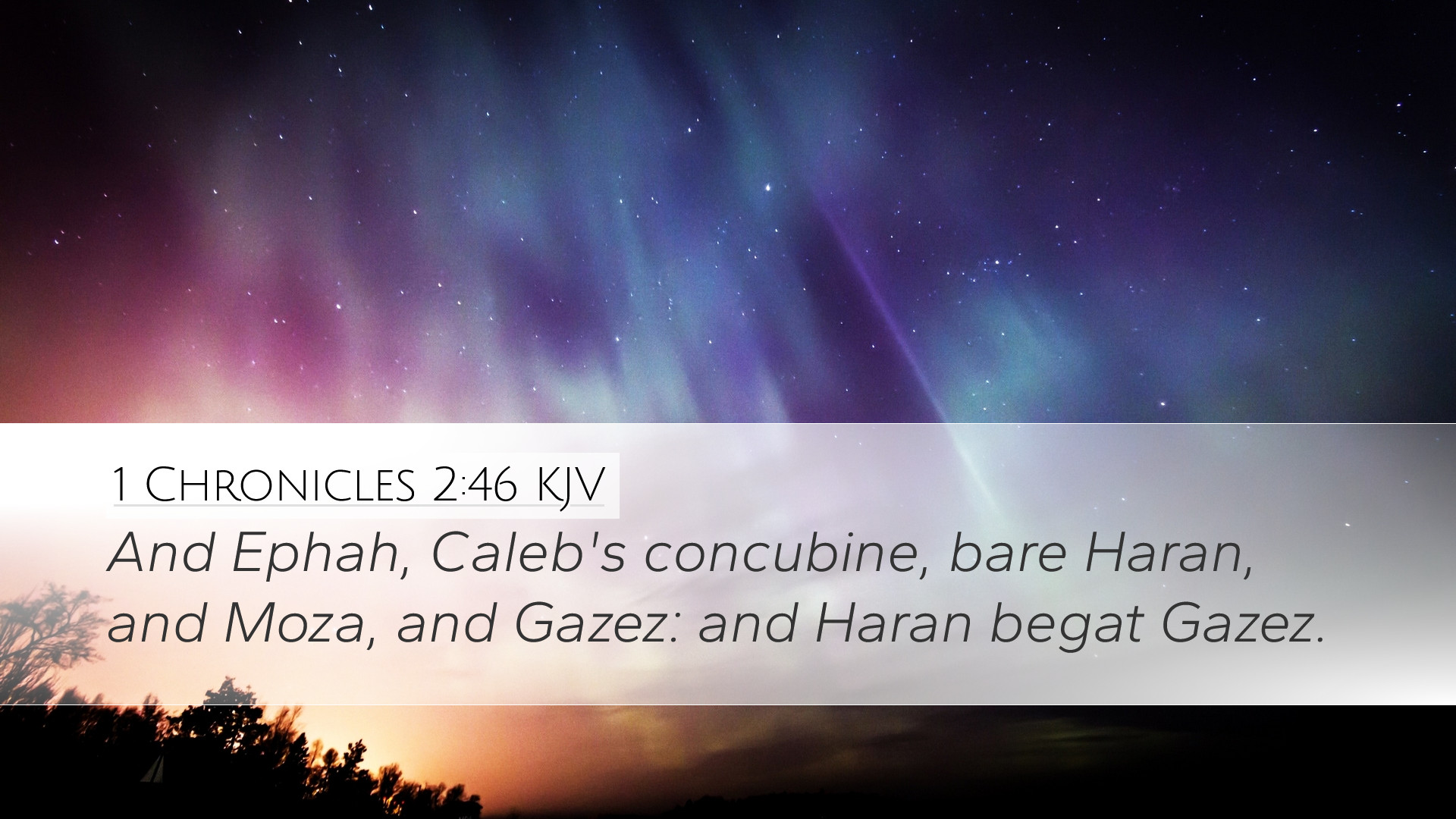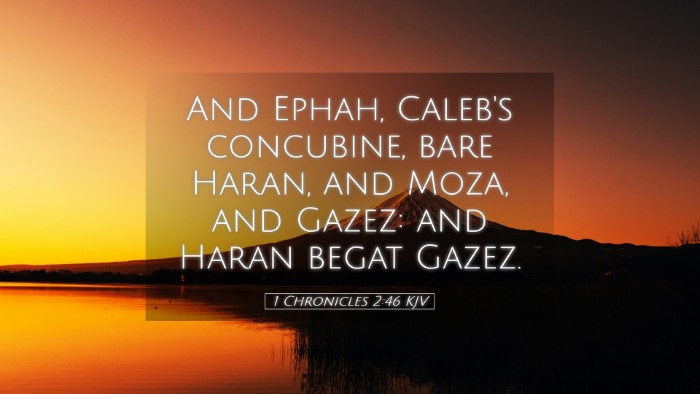Commentary on 1 Chronicles 2:46
Verse Text: "And Ephah, Caleb's concubine, bare Haran, and Moza, and Gazez: and Haran begat Gazez."
Introduction
The genealogy presented in 1 Chronicles serves several theological and historical purposes. It establishes lineage, highlights God’s faithfulness, and provides a historical lens through which the audience can view the unfolding narrative of Israel. Specifically, 1 Chronicles 2:46 offers insight into the family of Caleb, a significant figure in Israel’s history known for his faith and courage. Understanding these names and relationships gives depth to the historical background and significance of Caleb’s descendants.
Historical Context
The book of Chronicles was written post-exile, aiming to remind the Israelites of their heritage and God’s promises. This verse refers to Ephah, one of Caleb’s concubines, highlighting the fact that even in a patriarchal society, women played a crucial role in the genealogy, as their offspring contributed to tribal identity and belonging.
Genealogies in Chronicles
Genealogies in ancient Israel were not merely for record-keeping; they served the purpose of establishing identity within the covenant community. Matthew Henry notes that genealogical records were vital for the preservation of the nation's heritage.
- Preservation of Identity: The lineage traces aid in reaffirming the identity of the people and God's covenant with them.
- Significance of Caleb: Caleb’s lineage is particularly significant due to his unwavering faithfulness to God when he spied out the Promised Land.
Verse Analysis
This verse specifies Ephah as Caleb's concubine. Adam Clarke suggests that the inclusion of concubines in genealogical records exemplifies the social customs of the time, where such relationships were politically and socially significant.
Key Names
Breaking down the names yields deeper insights:
- Ephah: As Caleb's concubine, her bearing children was typical of the cultural norms and reflects the continuation of Caleb’s line.
- Haran: His mention as a descendant of Ephah links him directly to the broader narrative of Israel’s history.
- Moza and Gazez: These names are also critical. They may represent different branches of Caleb's lineage or distinct families that arose from this heritage.
Interpretation of Key Themes
God’s Faithfulness
The genealogies reinforce God’s faithfulness to His promises. As noted by Albert Barnes, every name stands as a testament to God’s covenant with Israel and His continual guiding hand through generations.
Inheritance and Legacy
Genealogies also highlight the legacy that is passed on to future generations. Caleb’s descendants inherit not only land but also the faith and courage exemplified by their ancestor. Matthew Henry remarks that recognizing one’s heritage is crucial for sustaining faith.
Theological Implications
This verse has theological implications that transcend its immediate historical context. It demonstrates the inclusivity of God's plan, showing that even those born of a concubine are included in the divine purpose, manifesting God’s grace.
The Role of Women in God’s Plan
Ephah’s naming highlights the significance of women in the biblical narrative. Their roles, often marginalized in ancient texts, are given recognition here, emphasizing that God’s grace and plans extend to all His people, regardless of societal status.
Conclusion
In conclusion, 1 Chronicles 2:46 provides a densely packed verse that, while brief, affirms the importance of genealogical records, the legacy of Caleb, and God’s never-failing faithfulness to His people. Understanding the nuances of this verse can enrich the faith of pastors, theologians, scholars, and students, encouraging them to delve deeper into the richness of biblical genealogies and their implications for understanding God’s ongoing plan of salvation and community.


